Key Takeaways
- You should not vacuum seal fresh onions or garlic because it can cause botulism to grow in the non-oxygen environment
If you’re like most people, you probably have a lot of questions about vacuum-sealing onions. Can you actually do it? How do you vacuum seal an onion? What are the benefits of doing so? Does it extend the shelf life of onions? Is it safe to vacuum seal raw onions?
We’ve got all the answers to your questions right here. Keep reading to learn everything you need to know about vacuum sealing onions, from how to do it properly to how long sealed onions will last without spoiling.
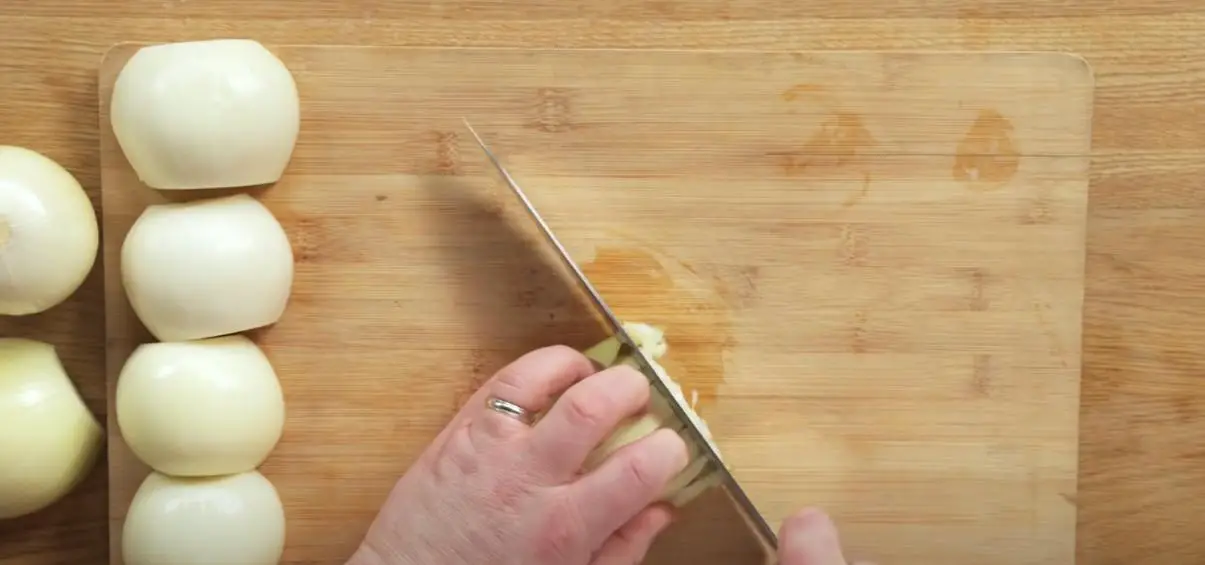
What is the best way to vacuum-seal onions?
Onions are a staple in many kitchens around the world. They add flavor and depth to dishes and can be stored for long periods of time. However, onions can also be tricky to store properly. If not vacuum sealed correctly, they can spoil quickly and cause an unpleasant smell in your kitchen.
The best way to vacuum-seal onions is to cook them first. This will help keep them fresh for a longer period of time. You can either fry, bake, or boil the onions before sealing them in a bag.
Make sure the onions are cooled completely before sealing, as any residual heat could cause the bag to seal improperly. Once the onions are cooked, you can simply place them in a bag and use a vacuum sealer to remove all the air.
How do you properly store onions after vacuum-sealing them?
When it comes to vacuum-sealing onions, there are a few things you need to keep in mind. First, you’ll want to use small vacuum seal bags. This will help to prevent the onions from being crushed during storage.
Second, you’ll want to use a food saver. This will help to keep the onions fresh for longer periods of time. Finally, you’ll want to place the onions in the freezer. This will help to preserve their flavor and texture.
Is it safe to vacuum-seal onions?
Onions are a staple in many kitchens around the world. They add flavor and depth to dishes and can be stored for long periods of time. Vacuum sealing is a popular way to keep onions fresh for extended periods of time. But is it safe?
Yes, it is safe to vacuum-seal onions. Vacuum sealing will not cause them to spoil or go bad any faster than other storage methods. In fact, vacuum sealing can help onions last even longer by protecting them from air and moisture exposure.
Note: I don’t recommend vacuum seal onions.
How long will sealed onion last?
When it comes to storing onions, vacuum sealing is a great option. Whole, raw onions can last two to three months when stored in a cool, dark place between 45 and 55 degrees Fahrenheit.
This is because vacuum sealing helps to preserve the quality of the onion by preventing moisture and oxygen from getting in.
Plus, it keeps the onion from releasing its natural gases, which can make other food items spoil faster.
How do I know if my onion is fresh enough to be sealed and stored?
When it comes to storing onions, the vacuum sealing process is key to maintaining their freshness. But how can you tell if your onion is fresh enough to be sealed and stored? The answer lies in its texture and skin.
The onion should be firm with dry, papery skin. If it is soft or has brown spots, it is probably spoiled and should not be eaten. You can also sniff the onion to see if it smells bad – if it does, it’s probably spoiled.
So next time you’re wondering whether or not your onion is fresh enough for vacuum sealing, just remember to check its texture and skin.
What happens if I try to vacuum seal an onion that isn’t fully cooked?
If you try to vacuum seal an onion that isn’t fully cooked, it can lead to bacteria growth which can cause botulism – a very dangerous, potentially lethal illness. Therefore, it is not safe to vacuum seal fresh or cooked foods.
Botulism is caused by a bacteria called Clostridium botulinum, which produces a toxin that can paralyze the muscles and cause respiratory failure. The bacteria thrive in low-oxygen environments like those found in sealed containers. When food is improperly sealed and left at room temperature, the bacteria can grow and produce toxins.
While any food can theoretically be contaminated with C. botulinum spores, certain foods are more likely to support bacterial growth due to their composition. These include meats, poultry, fish, shellfish, eggs, dairy products, and some fruits and vegetables. Vacuum sealing these types of foods without cooking them first creates ideal conditions for botulism-causing bacteria to grow and proliferate.
Do all vegetables need to be cooked before being sealed in a bag for storage purposes?
One of the great things about vacuum sealing is that you can seal up food without having to cook it first. This can be a real time saver when you’re trying to get dinner on the table quickly. But, you may be wondering, do all vegetables need to be cooked before being sealed in a bag for storage purposes? The answer is no, all vegetables do not need to be cooked before being sealed in a bag for storage purposes.
Some vegetables, such as carrots and potatoes, benefit from being cooked before they’re vacuum sealed. This is because cooking them helps to release some of their moisture so that they don’t become mushy when stored. However, other vegetables, such as broccoli and green beans, do not need to be cooked before they’re vacuum sealed. These types of vegetables will actually retain more of their nutrients if they’re not cooked first.
So, when it comes to deciding whether or not to cook your veggies before vacuum sealing them, it really depends on the type of vegetable and your personal preference. If you want to save yourself some time in the kitchen, feel free to skip the cooking step for certain types of veggies.
What type of bags are best suited for storing sealed foods like onions ?
When it comes to storing food, there are a lot of options out there. But if you’re looking for the best way to keep your foods fresh and sealed, then mylar bags are the way to go.
These bags are perfect for sealing in all types of foods, from onions to fruits and vegetables. And because they’re made with a special material that doesn’t allow oxygen or moisture to pass through, you can be sure that your food will stay fresher for longer.
So if you’re looking for the best way to store your food, vacuum sealing it in mylar bags is the way to go.
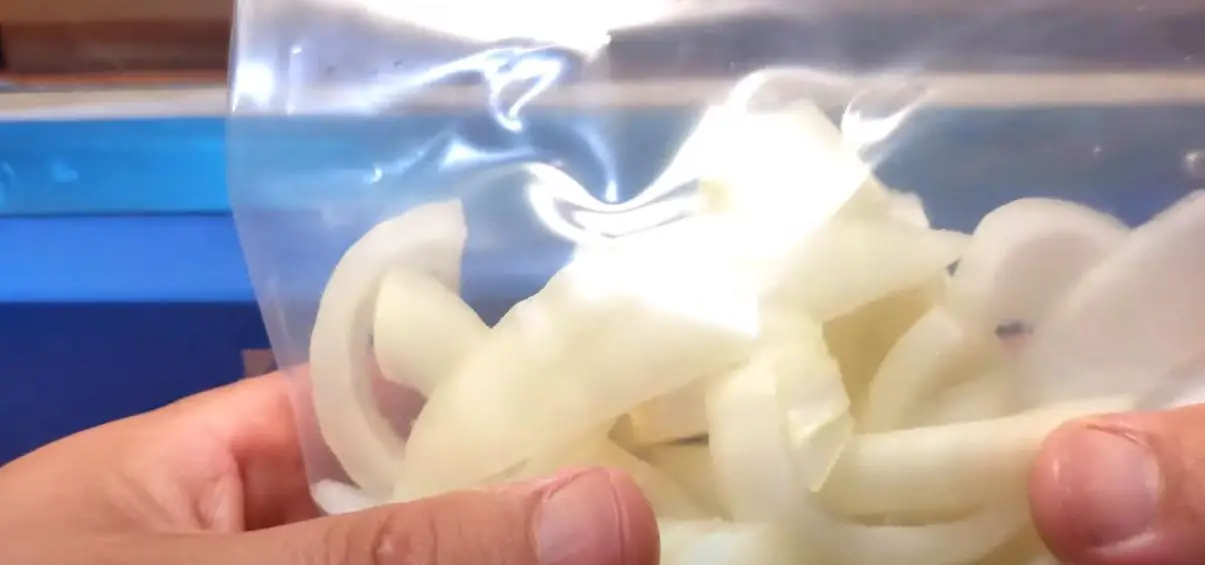
Final Verdict
If you’re looking to extend the shelf life of your onions, vacuum sealing them is a great option. Cooked onions will keep well in a vacuum-sealed container, but raw onions and garlic can pose a bacteria danger and should not be sealed.
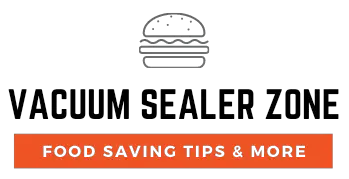
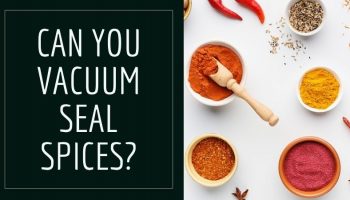
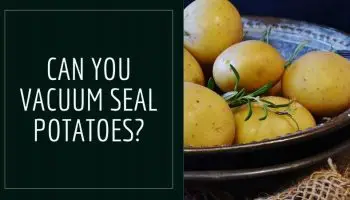
![Can You Vacuum Seal Tomatoes? [The Proper Way!]](https://vacuumsealerzone.com/wp-content/uploads/2021/08/Can-You-Vacuum-Seal-Tomatoes-350x200.jpg)